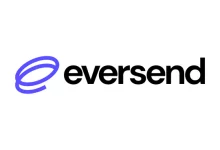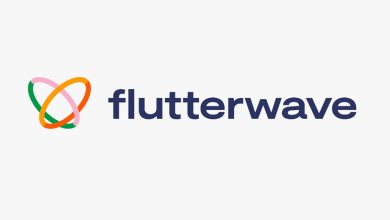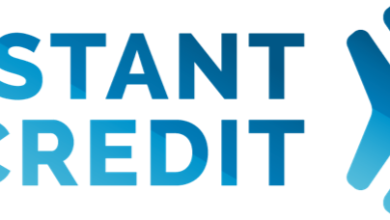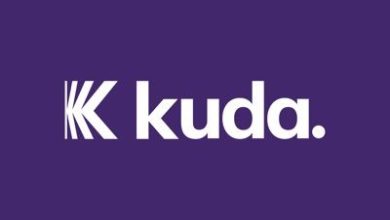How to Apply for Insurance your Goods, Shops and Business in Nigeria
As a businessman in Nigeria, protecting your assets and investments through insurance is vital for safeguarding your goods, shops, and overall business. Unexpected events such as theft, fire, or natural disasters can have devastating consequences if you are not adequately insured. This article will walk you through the essential steps to apply for insurance for your goods, shops, and business in Nigeria, ensuring you have the coverage you need to face any potential challenges.
How to apply for insurance your goods, shops and business in Nigeria as a businessman
Below are the steps needed to be followed, when apply for an insurance;
Assessing Your Insurance Needs
Before embarking on the insurance application process, it is crucial to identify the specific types of insurance coverage you require. Common insurance policies for businesses in Nigeria include:
Property Insurance: Provides protection for your physical assets, including your shops, office space, equipment, and inventory, against perils such as fire, theft, and vandalism.
Business Interruption Insurance: This policy covers the loss of income that occurs when your business operations are disrupted due to an insured event, allowing you to maintain financial stability during difficult times.
Goods-in-Transit Insurance: Essential for businesses involved in shipping and transportation, this policy covers your goods while they are in transit, protecting against damage or loss during transportation.
Public Liability Insurance: Offers coverage in case of third-party claims for bodily injury or property damage that occurs on your business premises.
Product Liability Insurance: Protects your business from claims arising due to damages caused by your products.
Selecting a Reputable Insurance Company
The next step is to research and choose a reputable insurance company in Nigeria. Look for insurers that have a strong track record of reliability, excellent customer service, and a history of paying claims promptly. Seek recommendations from other business owners, read reviews, and verify the company’s credentials with relevant regulatory authorities.
Obtaining Insurance Quotes
Once you have shortlisted a few insurance providers, reach out to them for insurance quotes tailored to your specific needs. Provide accurate and detailed information about your business, the goods you wish to insure, the value of your property, and any additional coverages you may require. Comparing quotes from different insurers will help you find the most suitable and competitive option.
Completing the Application Process
After selecting the insurance policy that aligns with your needs and budget, proceed with the application process. Fill out the necessary forms provided by the insurance company, and ensure all the information provided is accurate and up-to-date. Be prepared to provide documentation such as proof of ownership, property valuation reports, and any other relevant records requested by the insurer.
Paying Your Premium
Upon completing the application, the insurance company will assess the risk associated with your business and determine the premium amount you need to pay. Premiums can usually be paid annually, semi-annually, or quarterly, depending on the insurer’s policies. Make sure to pay the premium promptly to activate your insurance coverage.
Annual Policy Review
Insurance needs may change over time as your business grows and evolves. Therefore, it is crucial to review your insurance policy annually or whenever a significant change occurs in your business. This review ensures that your coverage remains adequate and up-to-date, providing you with the necessary protection against new risks that may have emerged.
What Documents are Needed for Business Insurance Applications in Nigeria
When applying for business insurance in Nigeria, several crucial documents must be provided to the insurance company to assess risk levels and determine appropriate premiums. First and foremost, business registration documents, including the business registration certificate and tax identification number, are required to verify the legitimacy of the enterprise operating within Nigeria.
Financial statements, such as income statements, balance sheets, and cash flow statements, are essential for evaluating the financial health of the business and assessing its risk level. Additionally, if seeking insurance coverage for goods or inventory, an inventory list detailing the items and their corresponding values must be submitted.
For businesses looking to insure their properties, pertinent information regarding the property’s location, size, and condition is necessary. Furthermore, insurers may inquire about safety measures in place to protect the business from potential risks like fire, theft, or natural disasters. Details of security systems, fire alarms, sprinkler systems, and other protective measures should be provided.
Lastly, it’s crucial to share information about any previous insurance policies held by the business, along with any claims made in the past. This helps the insurance company gain insight into the business’s claims history and risk profile. By furnishing these essential documents, business owners can facilitate a smoother insurance application process and ensure proper coverage for their ventures.
Benefits of insuring your business in Nigeria
Insuring your Nigerian business is a critical and prudent step that offers numerous advantages, safeguarding your assets and securing your financial future. Here are some key benefits of insuring your business:
- Financial Loss Protection: Business insurance shields your enterprise from potential financial devastation in the face of unexpected catastrophes like fire, theft, natural disasters, and other risks. With adequate insurance, you can rest assured that your company is financially resilient and capable of recovering from any unforeseen losses.
- Liability Coverage: Insurance provides essential liability coverage, protecting your business from potential lawsuits arising from property damage, personal injury, or other legal claims. This coverage can spare your company from hefty legal expenses and settlements that could otherwise jeopardize your financial stability.
- Enhanced Credibility: Having insurance enhances your company’s credibility in the eyes of clients, vendors, and partners. It demonstrates that you are a responsible business owner taking proactive measures to protect your enterprise and its stakeholders.
- Peace of Mind: The knowledge that your business is insured brings peace of mind, alleviating the stress associated with potential hazards. This allows you to focus on business growth and achieving your objectives with confidence.
- Business Continuity: Insurance plays a vital role in ensuring business continuity after an unforeseen event. With the right coverage, your business can continue operating even after a significant loss, keeping it afloat and generating revenue.
List Of Best Insurance Companies In Nigeria 2023
- Nem Insurance Plc
- Standard Alliance Insurance
- AXA Mansard Insurance
- African Alliance
- Industrial and General Insurance Plc
- LASACO Assurance Plc
- Mutual Benefits Assurance Plc
- Leadway
- Aiico Insurance
- Goldlink Insurance Plc
- Coronation Insurance PLC
- Cornerstone Insurance Plc
- Custodian And Allied Insurance Plc
F.A.Q
Who is the state control of insurance business in Nigeria?
The state control of insurance business in Nigeria is overseen by the National Insurance Commission (NAICOM). Established by the National Insurance Commission Act No. 1 of 1997, NAICOM is responsible for the effective administration, supervision, regulation, and control of insurance operations in the country.
What are the six compulsory insurance in Nigeria?
The six compulsory insurance in Nigeria are third-party motor insurance, employer’s liability/workmen’s compensation insurance, group life assurance, health care professional indemnity insurance, and occupiers’ liability insurance or insurance of public buildings. These insurance covers are mandatory under Nigerian law and aim to provide financial protection and security for individuals, businesses, and the public in various situations and circumstances.
What is the standard liability insurance?
Standard liability insurance provides financial protection for individuals or businesses in the event they are held responsible for causing injuries or property damage to others. It is a common feature in many insurance policies, such as auto insurance and homeowners insurance, where it covers the insured’s legal obligations and potential costs resulting from accidents or incidents for which they are found liable.
How does insurance company work in Nigeria?
In Nigeria, when you acquire an insurance policy, the insurance company will require you to pay a premium. The premium is the amount you pay for the insurance coverage or the total cost of the policy. As the insured, you have various options for paying the insurance premium, allowing you to choose a payment plan that suits your financial preferences and capabilities. This premium payment ensures that your policy remains active and provides you with the agreed-upon insurance benefits.
What is the difference between insurance and assurance?
The key difference between insurance and assurance lies in the nature of the risks they cover. Insurance provides protection against potential risks or uncertain events in the future, while assurance offers coverage for events that are certain to occur, such as death or maturity of a policy.
Conclusion
Securing insurance coverage for your goods, shops, and business in Nigeria as a businessman is a crucial step in safeguarding your assets and financial stability. By providing essential documents such as business registration, financial statements, inventory lists, property details, and evidence of safety measures, you can demonstrate your responsibility and commitment to protecting your enterprise. With insurance in place, you can gain peace of mind, build credibility, and ensure your business is well-prepared to handle unforeseen challenges.









